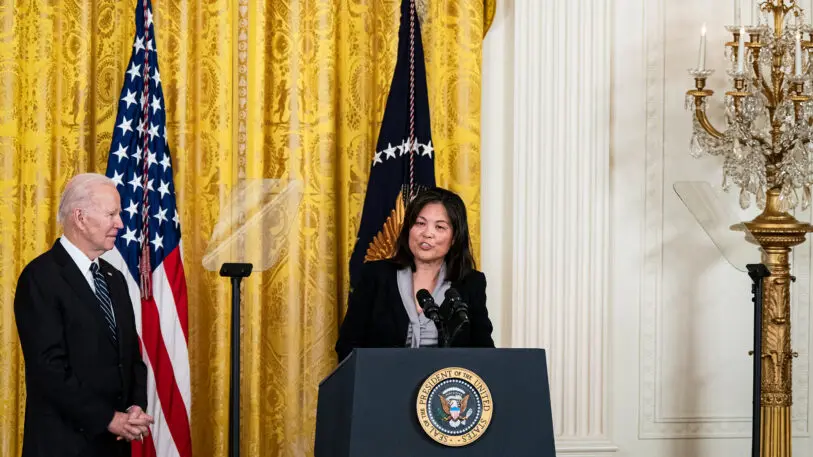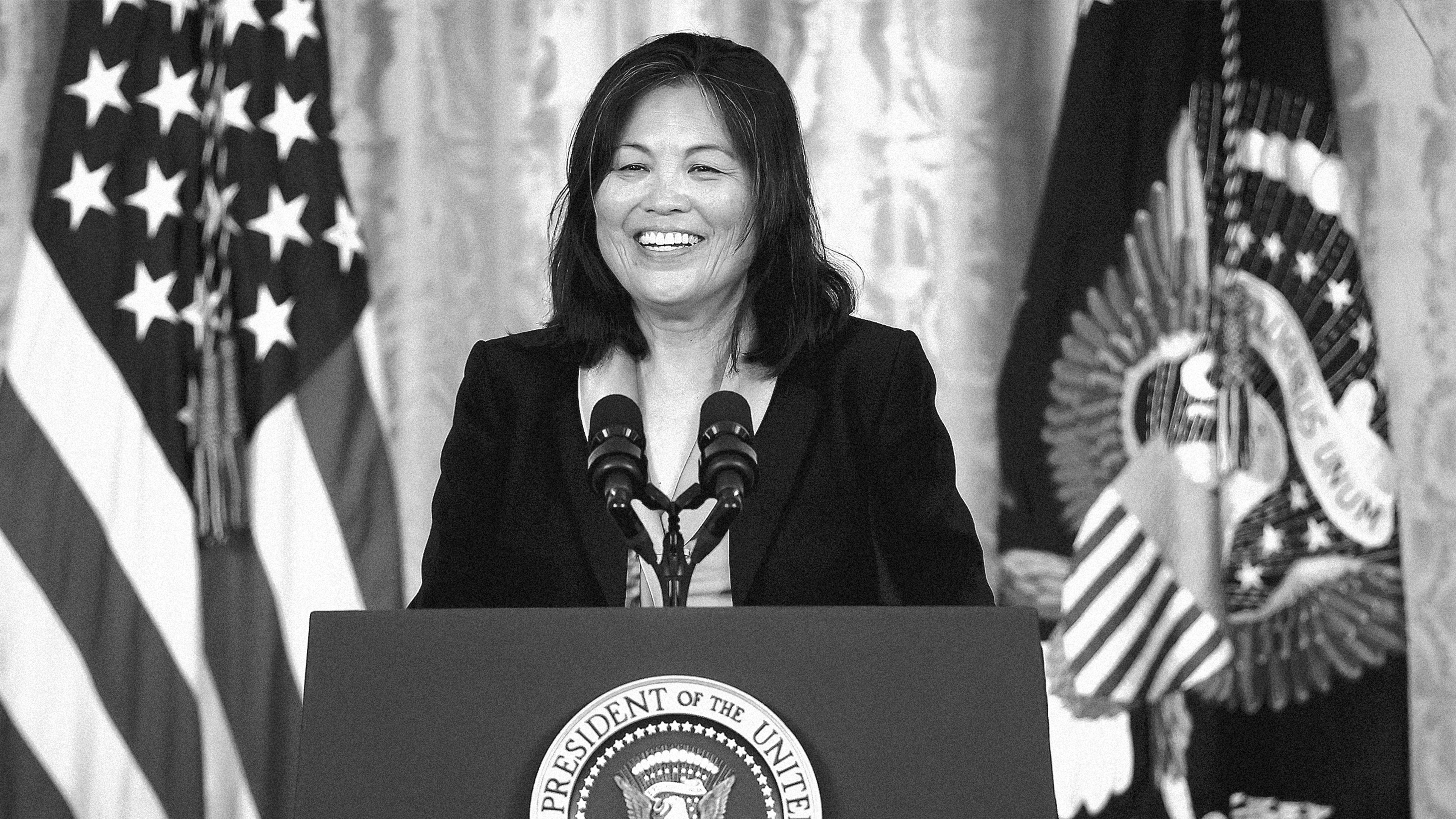At her nomination to become the next U.S. secretary of labor, Julie Su made a point to recognize workers who may feel invisible, or like they’ve been forgotten.
“To all workers who are toiling in the shadows, to workers who are organizing for power and respect in the workplace, know that we see you, we stand with you, and we will fight for you,” she said at the White House. “We have an extraordinary opportunity to build an economy where no one feels invisible.”

To labor leaders and worker advocates who have long worked with Su when she was California’s labor secretary (from 2019 to 2021) and the state’s labor commissioner (from 2011 to 2018), those comments exemplified Su’s career fighting for workers, and signaled what the Department of Labor may focus on under her leadership.
“That’s really how she walks in the world,” says Mary Kay Henry, international president of the Service Employees International Union (SEIU), of Su’s focus on “invisible” work. Su’s father owned a laundromat and she saw how hard he worked, Henry says, and how “that work has never really been valued in this country, and small-business owners really have to kind of scrape together a living. It makes her really connected to the issues that business leaders face, and that workers face.”
Su is well known as a worker advocate. As a civil rights attorney she won a groundbreaking case involving more than 70 Thai garment workers who had been enslaved in a sweatshop near Los Angeles; Su represented the workers in their fight for compensation and not only sued for back wages but also sued the manufacturers and retailers who had ordered the garments they made. And she’s gone after perpetrators of wage theft, winning back thousands for workers.
But Henry adds that Su also has a positive track record with business leaders. When a documentary revealed how SIEU janitors in California faced rampant sexual harassment and violence while working night shifts, Henry says Su helped figure out creative solutions between the workers and management, including allocating workforce training money to train the janitors in ways to prevent harassment; those workers then became “promotoras,” or community-based trainers, who shared what they learned with other janitors on the job.
Ai-jen Poo, president of the National Domestic Workers Alliance, pointed to Su’s track record on California’s Future of Work Commission to bring together not just unions and community members but also business and technology leaders to understand how jobs and the labor market may shift, and what the impacts were for the entire state.
“Julie brings a set of values that will be able to pull society together to create a path forward for all of us, not just workers for business,” Henry says. “That’s what makes me really excited about this moment of her leadership in the Department of Labor.”
Su’s efforts to think about the future of work also resonate with advocates, and bring hope that work situations can be improved for all kinds of laborers. “She’s not just paying attention to infrastructure in the traditional sense, like bridges, construction, and manufacturing. She also understands that we are a service-driven economy, that work is changing and has been changing for a long time, and that some of our fastest-growing sectors are sectors that women overwhelmingly work in, like home care,” Poo says. “She’s going to be looking at the whole picture of how we improve the quality of work for American workers now, but also into the future.”
Initiatives like the Inflation Reduction Act and the Creating Helpful Incentives to Produce Semiconductors (CHIPS) Act will reportedly create tens of thousands of jobs for Americans in industries like clean energy, construction, and manufacturing. Those who have worked with Su say she can build on those efforts—and also ensure investments in other types of industry geared more toward women or minority workers. “The ‘finish the job’ aspect of the president’s State of the Union speech and Julie’s leadership together I think underscores the president’s commitment to finish the job and invest in home care and childcare,” Henry says.
The care economy in particular is dealing with a massive workforce crisis, not just for childcare needs but also the care needs for aging Americans and people with disabilities. “They’re really the backbone of the economy, because these are the workers who are making it possible for everybody else like me to go to work,” Poo says. “So I’m really hopeful that we’ll be truly looking at that in a concentrated way.” The average wage for care workers is $14 an hour, and most don’t have healthcare benefits or paid time off; Poo hopes the administration can stake steps to improve the quality of those jobs.
Su was previously the deputy labor secretary under retiring secretary Marty Walsh, so worker advocates also note that her transition to the top role could be a seamless one. “She understands the department, all the initiatives, and she’s going to be in a position to deliver immediately,” Henry says. “She holds the trust of labor unions and worker organizations and business groups across the country, so that’s why I’ve said she’s made for this moment.”
Recognize your brand’s excellence by applying to this year’s Brands That Matter Awards before the early-rate deadline, May 3.
